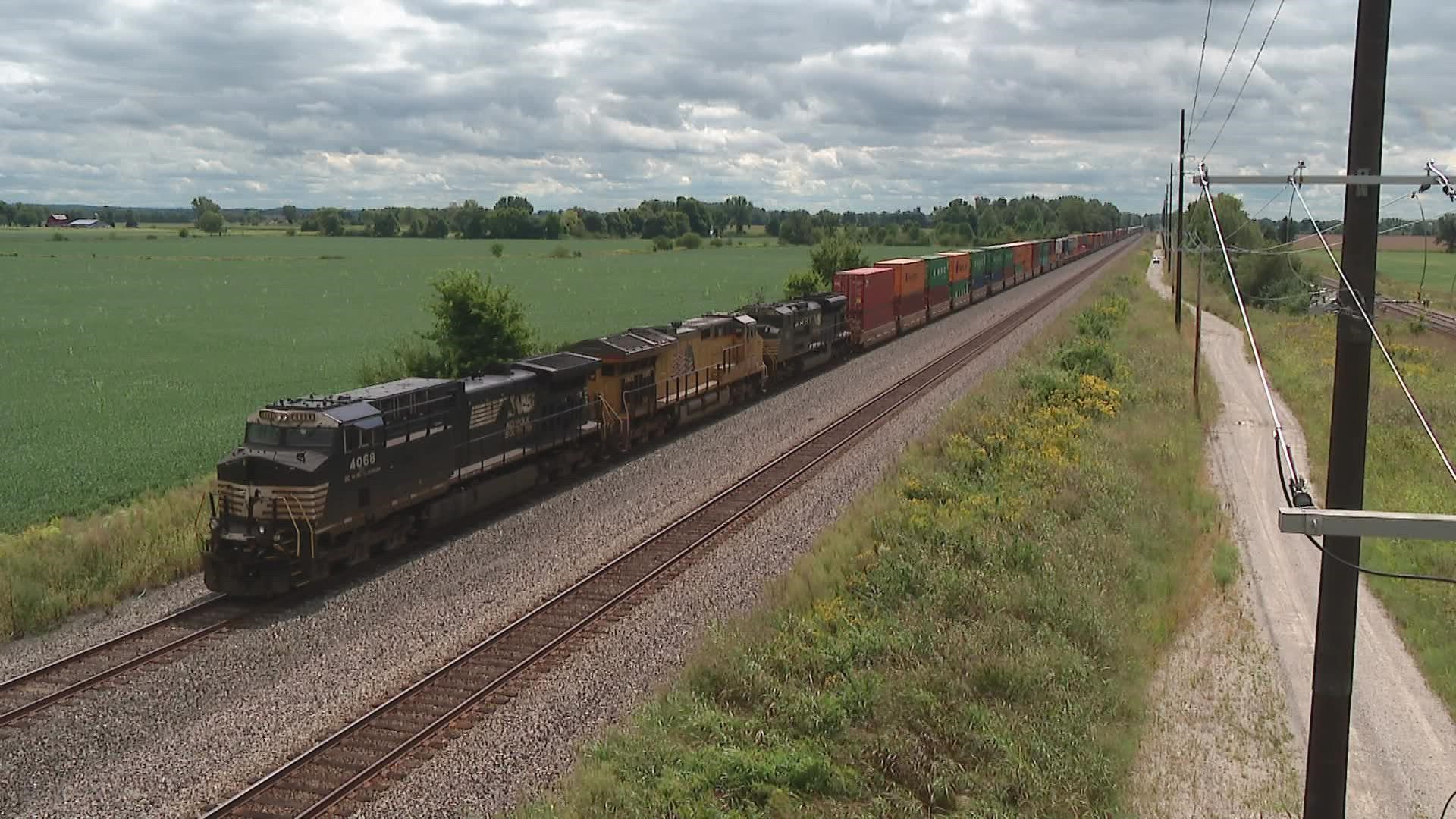DELAWARE COUNTY, Ohio — When it comes to miles of railroad, Ohio ranks third in the nation only behind Illinois and Texas.
On Friday, two railroad unions representing more than 50,000 employees threatened to walk off the job. They say quality of life is a major issue.
"We’re facing the potential of a strike because the railroad refuses to grant one single day of sick time,” said Ron Kaminkow, a member of the Brotherhood of Locomotive Engineers and Trainmen, one of the unions that has not reached an agreement.
“It’s about the phone rings at 2 a.m. to be at work at 4 a.m. after just 10 hours of rest prior. It’s about not knowing when you’re coming home and being penalized with discipline up to firing if you need to go to the doctor," he said.
"Railroaders are on call 365 days a year 24/7," said Clyde Whitaker of the Sheetmetal, Air, Rail and Transportation union.
Trains accounted for about 28% of total U.S. freight movements, according to government data for 2020, making it the busiest mode after trucks. Half of that traffic moves bulk commodities — particularly food, energy, chemicals, metals and wood products — as well as automobiles and industrial parts. The other 50% consists mostly of shipping containers carrying smaller consumer goods.
A potential strike puts Delaware County farmers like Bret Davis in a difficult position.
His corn and soybeans are ready to be harvested, but a strike prevents them from getting to market since they're shipped by rail. He can store them on his farm, but he's not making money.
"We have enough storage that we can put it in for fall, most of it, but what are we gonna do after that? We have to pay our bills, it has to move," Davis said.
If corn or other products can't move by rail that will disrupt an already weak supply chain sending prices higher.
Norfolk-Southern Railroad issued a statement saying, "We have communicated to our customers that we will temporarily halt certain types of shipments beginning September 12. In addition, to safely ramp down our network and enable us to bring service back quickly, certain other customers will see a preliminary curtailment of service before September 16. Should the two remaining unions commit not to strike, we will resume full operations. We have communicated to all parties in the negotiations that we will not lock out union employees. Our goal is to keep our nation’s economy moving, serve our customers, and reach agreements with the remaining unions."
There are 13 unions involved in the negotiations. Eleven of them have reached a tentative agreement.
Whitacker said the other unions get time off which is why they've agreed to a contract. He says pay is on the table as well.
"Even during the pandemic, they set record high profits, and we ran the trains that made that. If not for engineers and conductors being on trains, the railroads don't make money," he said.
Union Pacific Railroad also issued a statement saying, "Considering the looming possibility of a national rail labor strike, we will begin securing hazardous materials and other security-sensitive materials on Sept. 12 to protect employees, customers, and the communities we serve. We are working with customers to provide updates as they become available. While these actions are necessary, they do not mean a work stoppage is certain. What we want, and continue to push for, is a prompt resolution that provides historic wage increases to employees and allows the railroads to restore service as soon as possible, preventing further disruption to the struggling supply chain."
President Joe Biden has personally talked with two of the railroad unions with and railroad companies to prevent a strike, according to a White House official. Bloomberg first reported the president's discussions. The official added that Labor Secretary Marty Walsh, Transportation Secretary Pete Buttigieg and Agriculture Secretary Tom Vilsack are also engaged in the talks, CBS News reports.
The Association of of American Railroads report found that a nationwide rail service interruption would impact economic output could cost more than $2 billion per day of a shutdown.

